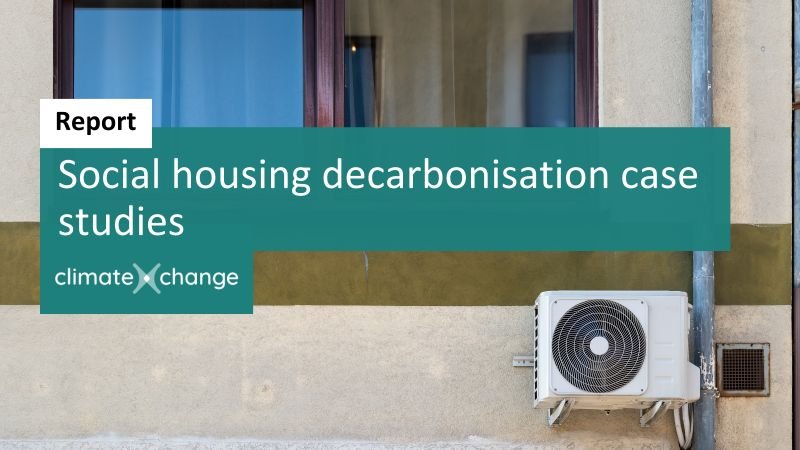Social housing decarbonisation case studies by ClimateXChange
There is a need to decarbonise heating sources to reduce greenhouse gas emissions. Switching from fossil fuel-based technology, such as gas and oil, to low-carbon electricity is a significant step in this process.
To achieve Scotland’s emissions reduction targets, the number of zero direct emissions heating systems (ZDEH) installed, such as heat pumps, needs to increase.
Social landlords have begun taking steps to improve the energy efficiency of the homes they rent out and to meet standards set by the Scottish Government, such as the second milestone of the Energy Efficiency Standard for Social Housing (EESSH2). In recent years, their work has included a rising number of ZDEH projects.
This research has developed a series of case studies to support social landlords in their delivery of future ZDEH projects.
The learnings from this report and the associated case studies seek to encourage social landlords to deliver more decarbonisation projects, and support the delivery of Scottish Government’s net zero targets.
Lessons for future social housing heating projects:
Some lessons for social landlords:
Tenant engagement: Consider a mixed-method approach to engage and support a range of residents, such as face-to-face events, ongoing support and opportunities to see and use the technology in-situ.
Impact evaluation: This should be planned from the outset of the project to truly understand the impact of the project on tenants, its success in achieving its aims and how it might be improved for next time. The methodology should provide a before and after picture, and include temperature and humidity assessments, energy consumption data and EPC data.
Multiple buildings: In projects involving large or multiple buildings, delivering at least one building as a pilot helps identify and address any challenges. Rolling the installations out in one building helps to reduce disruption and focus tenant support.
Project management and costs: If you plan to procure a project manager, involving them from the outset means that they can support with application writing. It should be noted that there may be a cost to this, which should be taken into account. Consider aspects such as planning permission requirements, meter changes and electricity grid upgrades at an early stage to avoid unexpected costs.
